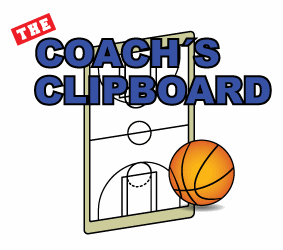What makes a good assistant basketball coach?
By Dr. James Gels, From the Coach’s Clipboard Basketball Playbook"Helping coaches coach better..."
Disclosure: This page contains affiliate links, which means that Coach's Clipboard receives a small commission (at no cost to you) if you make a purchase using these links.
"If you want to be a head coach, first be a great assistant coach." - Rick Carlisle
I have been asked this question a number of times. I have been assistant varsity coach for our very successful high school boys and girls teams for several years, so I am speaking directly from that role. This article addresses mostly high school basketball assistants, as responsibilities may differ considerably for youth level, college, and AAU assistants.
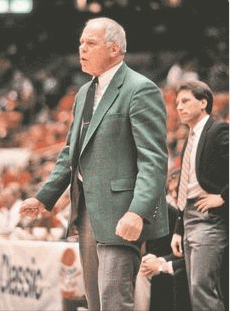
Jud Heathcote and young assistant Tom Izzo
Loyalty
The most important attribute is loyalty to your head coach. You are on the staff by his/her invitation. This is a privilege and an opportunity given to you. Do everything you can to learn the head coach's system. Help sell the program and philosophy to the players, parents and fans. Make the head coach's job easier.I have seen examples of a young assistant trying to undermine the head coach in an attempt to advance his/her own coaching career. This usually results in disaster for the current team and players, and is almost always detrimental to the assistant as well. Remember that when you apply for your own head coaching job, it's usually your head coach that can help you get that position, and will recommend you to others.
This is not to say that you should just be a "yes man" and never disagree with your head coach. You should always be looking for new things that might help the team, and discuss these ideas with the head coach. Sometimes the head coach will agree and adopt your idea, and oftentimes he/she will not. Many times I have submitted what I thought was a pretty good play, only to have it "filed away".
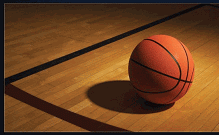
Keep an open mind and always be willing to learn
Be a student of the game. Being an assistant is an excellent opportunity to learn about coaching... like an internship. Don't come into the position thinking that you already know everything. If you keep an open mind, you can learn something new almost every day... not only the coach's general system, but how to teach and conduct practices, run drills, motivate, deal with players, parents and administration.It's not all X's and O's. A good assistant coach is one who is willing to listen more than talk, and as a result, becomes more and more knowledgeable each year. Ask questions. Keep a notepad at practice to jot things down.
Understand your role
Just what is your job? What does your head coach want you to do? When I first started as assistant years ago, that was my first question for my head coach in a summer camp. He answered, "Just learn and teach."Your role is defined by your head coach, and the number of assistants that he has. Your role may evolve over time as you are entrusted with more and more responsibility. Don't expect to come in on day one and start running practices or calling the shots from the bench.
At first, you must be willing to spend most of your time listening and learning the system. Once you have learned the system, you are better able to teach and discuss things with the head coach.
Your role as a practice coach will evolve. For example, if your expertise is post play, your head coach may want to do breakdown drills with you on one end teaching post players, while he/she takes the perimeter players. In full-court drills, get on the opposite end to help spot things and teach.
Understand your role on the sideline during games. Some head coaches will want your input and advice, especially after you have learned the system. Others may want you to be silent. There can never be dissension on the bench. The head coach must make the final decision always... respect that. Help maintain a positive, upbeat attitude with players on the bench. Encourage and teach.
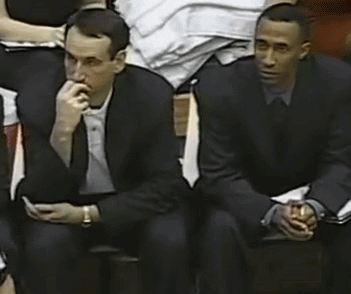
Understand your role in the locker room before the game and at halftime, in team meetings, and during time-outs. Don't speak unless your head coach invites you to do so. Keep track of the time at halftime. There is little time in a time-out... have the clipboard and marker ready, be quiet and let the head coach do the talking.
Positively interact with coaches, players, parents and fans
By far, my greatest reward as an assistant coach are the friendships and relationships that I have enjoyed over the years with the coaches, players, parents and fans... oftentimes people I would have never otherwise gotten to know. Respect and develop your special relationship with other assistant coaches. It's a lot of fun if you are all on the same page and work together. It's no fun and it's detrimental if the assistants are at odds with each other.Get to know your players. Earn their respect. Be a role model by demonstrating good values and principles. Ask them about their schoolwork and classes, and stress how education is far more important than basketball. Help teach them how to be part of a team.
Sometimes players will come to you instead of going directly to the head coach. You can serve as a "buffer", and sometimes you get to be the "good cop". Listen, understand, explain, encourage, teach. Help each player on the team to feel important, even the 15th man.
From time to time, I will take aside a player who is not getting much playing time and explain to him/her why I think he/she is important to the team, and that it's important to me that he/she is having fun. Everyone likes to feel needed and appreciated, and no-one likes feeling ignored.
Help maintain a positive, competitive atmosphere, and have fun with your players. But be tuned in to recognize any early signs of player dissension or problems, and report immediately to your head coach.
One advantage of being an assistant is not having to directly deal with parents, and their questions about playing time, strategy, etc. Instead, I try to get to know the parents as a friendly liaison, occasionally explaining in a general way why we do certain things the way we do.
Mainly, I try to compliment parents on the great kids that we get to work with, and I like to relate amusing or touching anecdotes about their own child... maybe something that happened in practice that they would like to hear.
But I never get caught in a confrontational conversation with a parent... politely bow out and explain that they'll have to discuss things with the head coach. Fortunately, 90% of interactions with parents are positive, and most parents are good people who are just concerned for their own child, as they should be.
Professionalism
Look and act professional. Be clean and dress neatly. Conduct yourself in a positive, friendly manner. Get along with others. Do not be adversarial with opposing coaches, players and fans. Be cordial to the officials. Demonstrate good sportsmanship. Always be on-time for meetings, practices, games, etc.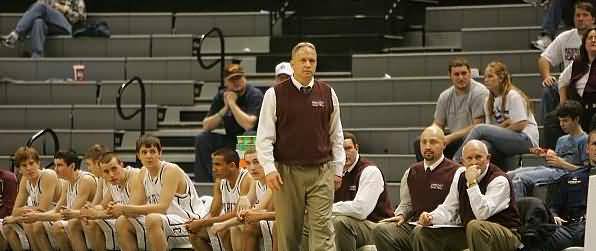
Specific tasks
Below are some specific tasks that an assistant could be involved in... again, depending on just what your head coach wants you to do, and whether there are other assistants and managers to help as well.Communication with the scorer's table... keep track of your time-outs, fouls, etc.
Pre-game player match-ups... while our head coach is visiting with the opposing coach and officials, get the opponent's starters from the scorer's table, observe them in warm-up drills, and create your defensive match-ups. Review these with the head coach.
Pre-game drills... some teams seem to require an assistant under the basket barking at them to get them to work up a sweat in their pregame drills. Help get them ready to play.
Keep stats... the shot charts, rebounds, assists, turnovers, etc. You may designate your statisticians and coordinate their activities.
Scorebook... make sure the roster has been entered correctly, and that the scorer's table knows your starters before each half begins.
Clipboards, markers... make sure you have them ready on the bench, during time-outs, and in the locker-room.
Chairs... before the game, make sure there are enough chairs on the bench for all coaches, players and managers.
Uniforms, towels... help keep track of uniforms. We keep an extra "blood uniform" that a player can quickly change into, in the event of extensive blood on a uniform. Have a good supply of dry towels on the bench.
Water... make sure players have water available on the bench.
Medical, first-aid kit... at all games and practices, well-stocked. Know where to find ice.
Basketballs... make sure your practice and game balls are properly inflated. Collect the balls at the end of each practice and secure them.
Scouting... your head coach may ask you to help scout other teams.
Help with youth clinics... help your head coach build the program by running clinics for young players... your future.
Filming practices
Breaking down game film (ours or our opponent's)
Run practices... if your head coach is unable to attend a practice, be ready to step forward and have a well-organized practice ready. Teach what your head coach expects you to teach.
Monitoring athletes' academic progress
Coordinating team building events or community service activities
Confirming transportation/travel arrangements
Running strength training/conditioning sessions
Helping athletes rehabbing injuries
Maintain a playbook... this of course is a natural for me. If you have the time and desire, offer to create and maintain a team playbook (if there is none). Also, if you have the computer skills and resources, offer to create a team website (password-protecting sensitive areas).
Communication... help team communication by keeping a list of all player and coaches phone numbers, and establish a "phone tree" for calling each other.
Being an assistant is a lot of fun... enjoy and appreciate the privilege.
